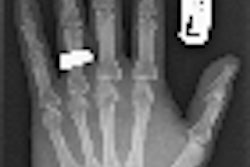The U.K. Department of Health announced that it will accelerate the dismantling of the National Programme for IT, marking the death knell for the country's high-profile but controversial project to link all National Health Service (NHS) hospitals with a centralized medical records network.
The program was launched in 2002 with ambitious goals, but soon became the victim of cost overruns and late deliverables. In an announcement to the press on 23 September, the Department of Health confirmed that it would end the project following a review by the Major Projects Authority (MPA) of the Cameron administration.
The MPA reported to the House of Commons that the program "has not and cannot deliver to its original intent." Approximately 12 billion pounds (13.7 billion euros) was allocated, and 6.4 billion pounds (7.3 billion euros) spent to date since the program was created.
PACS acquisitions at NHS hospitals were exempt from criticism in the report, and were cited as one of several examples of the project's achievements. PACS were among the projects that provided vital support to the NHS, the Major Projects Authority said.
The Department of Health stated that it intended to move from a top-down approach to one driven by local decision-making with respect to providing information systems. The press release announcing the decision quoted Sir David Nicholson, chief executive of the NHS, as stating that restoring local control over decision-making and enabling greater choice for NHS organizations would be a key factor to improve quality and safety in the secure exchange of information.
Katie Davis, the managing director for informatics at the Department of Health, will be instituting a full review of the department's informatics applications and services to ensure that all activities are compatible with these aims. Later in the autumn, the Department of Health will provide a framework for providing IT support to the NHS, as well as announcing what work will continue and what will be terminated, she stated.
The health department also announced that it is establishing a new partnership with Intellect, the U.K. trade association for the IT, telecommunications, electronic, and medical device industries. Its Healthcare Programme Mission includes 260 corporate members. The partnership will "explore ways to stimulate a marketplace that will no longer exclude small and medium-sized companies from participating in significant government healthcare IT projects."
Intellect has issued a statement saying the Department of Health needed to "urgently focus" on enabling and stimulating the market to deliver interoperable systems to maximize the return on existing and future investment in IT. It also recommends that the department develop a central focus on clinical information sharing in the NHS Information Strategy.
Intellect has published a 12-page white paper containing recommendations for sharing clinical information more effectively. This may be downloaded at its website.



















